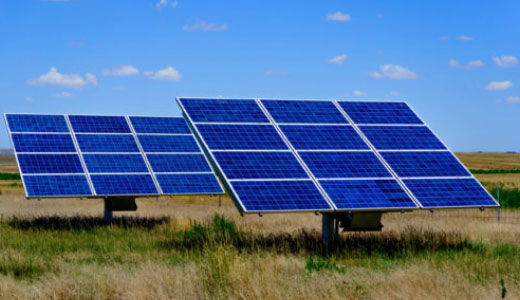
What is a Solar Panel?
Solar energy simply begins with the Sun. Solar panels which are also known as "PV panels" are potentially used to convert light from the sun, which is thus composed of particles of energy known as "photons". These photons are converted into electricity that can be used to power electrical loads. These Solar panels can be used for a wide variety of applications which includes remote power systems for Cabins, Remote sensing,Telecommunications equipment and even for the production of Electricity by the Residential and Commercial solar electric systems.
How Do Solar Panels Work?
Solar panels do collect clean renewable energy in the form of sunlight and then convert that light into electricity. It is then used to provide power for electrical loads. These Solar Panels do absorb the photons and in turn initiates the electric current. This is how it works. For an average home, there is more than enough roof area to initiate the necessary number of solar panels to produce enough solar electricity.


Benefits of Solar Energy-
Solar energy helps to reduce harmful emissions that are caused by the burning of fossil fuels. It improves the health of everybody for years to come. Some of the key environmental benefits of solar energy can be stated as below:
- a. Lessens the Usage of Water- Solar panels do not require any kind of water to function. The conventional electricity sources use tens of thousands of liters of water every year if we compare it with Solar Energy. Even the Power sector in India utilizes plants for the purpose of cooling generations, processing or refining fuel and even for transporting fuel through pipes.
- b. Air pollution Mitigation - Harmful gasses like methane and carbon dioxide are generated from the Fossil fuels which is a reason to reduce the air quality. These Air pollution hinders our health and well being causing anxiety, headaches, heart attacks,pneumonia, asthma, bronchitis, and even allergies. Solar energy dramatically reduces these carbon emissions in the air you breathe, improving the overall health.


- c. Slowing down the Climate change -The burning of fossil fuels leads to an increase in the presence of greenhouse gases like carbon dioxide and methane into the atmosphere. This contributes to the greenhouse effect which is warming our planet faster than ever. Consequent increase in the global temperature results in melting of glaciers, sea levels rise. These causes a number of calamities like cyclones, frequent floods, extreme heat and drought to happen in our environment. On the other hand, generating electricity from solar panels helps stop these disasters from happening. No greenhouse gases are formed and therefore helping to slow down climate change.
- d. Reduction of Fossil fuel consumption -Our dependence on Coal, Oil and Natural gas for our energy needs are at a rising pace. Fossil fuels are very finite in nature and are certain to not keep up with the increasing demand of energy. This leads to a major contribution to pollution. Solar energy, on the other hand, is very abundant and can easily be endlessly harnessed to meet global energy consumption needs. This reduces energy costs and ensures a stable energy future for Mankind in the future.

